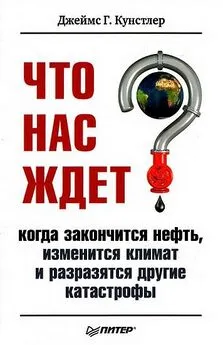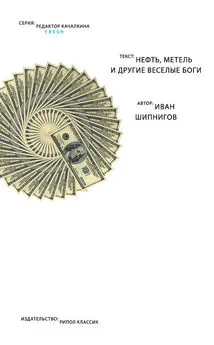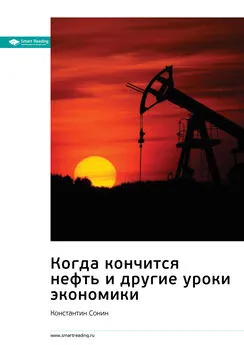Константин Сонин - Когда кончится нефть и другие уроки экономики
- Название:Когда кончится нефть и другие уроки экономики
- Автор:
- Жанр:
- Издательство:Литагент Corpus
- Год:2019
- Город:Москва
- ISBN:978-5-17-115738-8
- Рейтинг:
- Избранное:Добавить в избранное
-
Отзывы:
-
Ваша оценка:
Константин Сонин - Когда кончится нефть и другие уроки экономики краткое содержание
Когда кончится нефть и другие уроки экономики - читать онлайн бесплатно полную версию (весь текст целиком)
Интервал:
Закладка:
26
Baye M. R., Kovenock D., de Vries C. G. Comparative Analysis of Litigation Systems: An Auction-Theoretic Approach // The Economic Journal. Jul. 2005, 505. Р. 583–601.
27
Feddersen T., Pesendorfer W. Convicting the Innocent: The Inferiority of Unanimous Jury Verdicts under Strategic Voting // American Political Science Review. Mar. 1998, 92 (1). P. 23–35.
28
Goere J. K., Yariv L. An Experimental Study of Collective Deliberation // Econometrica. May 2011, 79 (3). P. 893–921.
29
Glaeser E., Shleifer A. The Rise of the Regulatory State // Journal of Economic Literature, 2003, (51). P. 401–425.
30
Stigler G. J. The Theory of Economic Regulation // Bell Journal of Economics, 1971, 2 (1). P. 3–21.
31
В теории может сложиться ситуация, когда в отсутствие регулирования на рынке оказывается слишком много компаний по сравнению с общественно оптимальным уровнем. На практике монополисты используют этот теоретический пример для законодательного закрепления своей монополии.
32
Yakovlev E., Zhuravskaya E. The Unequal Enforcement of Liberalization: Evidence from Russia's Reform of Business Regulation // Journal of European Economic Association. August 2013, 11 (4). P. 808–838.
33
Rodrik D. Industrial Policy for the Twenty-First Century. Mimeo, 2004.
34
Например, Kaufmann D., Kraay A., Mastruzzi M. Governance Matters VII. Aggregate and Individual Governance Indicators 1996–2008. World Bank, Policy Research Working Paper 4978, June 2009.
35
Chong A., La Porta R., Lopez-de-Silanes F., Shleifer A. Letter Grading Government Efficiency // Journal of the European Economic Association, 2014, 12 (2). Р. 277–299.
36
Besley T., Kudamatsu M. Making Autocracy Work. Published Helpman E. (ed.). Institutions and Economic Perfomance. Chapter 11, 2010.
37
Acemoglu D., Egorov E., Sonin K. Political Selection and the Persistence of Bad Governments // Quarterly Journal of Economics. 2010, 125 (4). P. 1511–1575.
38
Morck R., Stangeland D. A., Yeung B. Y. Inherited wealth, corporate control, and economic growth? Published in Morck R. (ed.). Concentrated Corporate Ownership, NBER Conference Volume, Chicago: University of Chicago Press, 2000.
39
Монтефиоре С. С. Сталин: Двор Красного монарха. М.: ОЛМА-Пресс, 2005.
40
Dominguez J. I. The Perfect Dictatorship? Comparing Authoritarian Rule in South Korea and in Argentina, Brazil, Chile, and Mexico. Mimeo, 2002.
41
Jones B. F., Olken B. A. Do Leaders Matter? National Leadership and Growth Since World War II // Quarterly Journal of Economics, 2006, 120 (3). P. 835–864.
42
Londregan J., Poole K. Poverty, the Coup Trap, and the Seizure of Executive Power // World Politics, 1990, 42 (2). P. 151–183.
43
Enikolopov R., Korovkin V., Petrova M., Sonin K., Zakharov A. Field Experiment Estimate of Electoral Fraud in Russian Parliamentary Elections // Proceedings of the National Academy of Sciences, 2013, 110 (2), 448–452.
44
Издание Slon.ru в 2016 году переименовано в Republic.ru.
45
Gentzkow M., Shapiro J. M. Media Bias and Reputation // Journal of Political Economy, 2006, 114 (2). P. 280–317.
46
Mullainathan S., Shleifer A. The Market for News // American Economic Review, 2005, 95 (4). P. 1031–1053.
47
Baron D. P. Persistent Media Bias // Journal of Public Economics, 2006, 90 (2). P. 1–36.
48
Besley T., Prat A. Handcuffs for the Grabbing Hand? Media Capture and Government Accountability // American Economic Review, Jun. 2006, 96 (3). Р. 720–736.
49
DellaVigna S., Kaplan E. The Fox News Effect: Media Bias and Voting // The Quarterly Journal of Economics, 2007, 122 (3). P. 1187–1234.
50
Petrova M. Inequality and Media Capture // Journal of Public Economics, Feb. 2008, 92 (1–2). P. 183–212.
51
Dyck A., Zingales L. The Bubble and the Media . Published in Cornelius P. and Kogut B. (eds.). Corporate Governance and Capital Flows in a Global Economy. New York: Oxford University Press, 2002.
52
Reuter J. Does Advertising Bias Product Reviews? An Analysis of Wine Ratings // Journal of Wine Economics, 2009, 4 (2). P. 125–151.
53
Gehlbach S., Sonin K., Zhuravskaya E. Businessman Candidates // American Journal of Political Science, 2010, 54 (3). Р. 718–736.
54
Enikolopov R., Petrova M., Zhuravskaya E. Media and Political Persuasion: Evidence from Russia // American Economic Review, 2011, 101 (7), 325–385.
55
Первая – только для руководящих органов правящей партии, вторая – для всех.
56
Egorov G., Guriev S., Sonin K. Why Resource-Poor Dictators Allow Freer Media: A Theory and Evidence from Panel Data // American Political Science Review, 2009, 103 (4). P. 645–668.
57
Djankov S., Glaeser E., La Porta R., Lopes de Silanes F., Shleifer A. The New Comparative Economics // Journal of Comparative Economics, 2003, 31 (4). P. 595–619.
58
Lambert-Mogiliansky A., Sonin K., Zhuravskaya E. Are Russian Commercial Courts Biased? Evidence from a Bankruptcy Law Transplant // Journal of Comparative Economics, 2007, 35 (2). Р. 254–277.
59
Эта глава представляет собой переработанную версию статьи в журнале “Эксперт” в 2003 году, написанную совместно с Сергеем Гуриевым.
60
Издана на русском языке: Де Сото Э. Загадка капитала. Почему капитализм торжествует на Западе и терпит поражение во всем остальном мире. М.: Олимп-Бизнес, 2004.
61
Djankov S., La Porta R., Lopez-De-Silanes F., Shleifer A. Courts // The Quarterly Journal of Economics, May 2003, 118 (2). P. 453–517.
62
Rajan R. G., Zingales L. Financial Systems, Industrial Structure, and Growth // Oxford Review of Economic Policy, 2001, 17 (4). P. 467–482.
63
Sonin K. Why the Rich May Favor Poor Protection of Property Rights // Journal of Comparative Economics, 2003, 31 (4). P. 15–31;
Сонин К. Институциональная теория бесконечного передела // Вопросы экономики, 2005, № 7. С. 1–15.
64
Easterly W., Levine R. Africa's Growth Tragedy: Policies and Ethnic Divisions // The Quarterly Journal of Economics, 1997, 111 (4). P. 1203–1250;
Alesina A., Devleeschauwer A., Easterly W., Kurlat S., Wacziarg R. Fractionalization // Journal of Economic Growth, 2003, 8. P. 155–194.
65
Knack S., Keefer P. Does Social Capital Have an Economic Payoff? A Cross-Country Investigation // The Quarterly Journal of Economics. Nov. 1997, 112 (4). P. 1251–1288.
66
Caselli F., Coleman W. On the Theory of Ethnic Conflict // Journal of the European Economic Association, 2013, 11 (1). Р. 161–192.
67
Glaeser E., Shleifer A. The Curley Effect: The Economics of Shaping the Electorate // Journal of Law, Economics, and Organization, 2005, 21 (1). P. 1–19.
68
Olsson O. Conflict Diamonds // Journal of Development Economics. Mar. 2007, 82 (2). P. 267–286.
69
Bruno M., Sachs J. Energy and Resources Allocation: A Dynamic Model of the “Dutch Disease” // Review of Economic Studies, 1982, Vol. 51, № 159. Р. 845–859.
70
Sachs J., Warner A. Fundamental Sources of Long Run Growth // The American Economic Review. Mar. 2007, 87 (2). P. 184–188.
71
Волчкова Н. Является ли “голландская болезнь” причиной энергозависимой структуры российской промышленности / Под ред. Д. Тарра. Всемирный банк. 2006.
72
Ahrend R., De Rosa D., Tompson W. Russian Manufacturing and the Threat of Dutch disease: a Comparison of Competitiveness Developments in Russian and Ukrainian Industry // OECD Economics Department Working Paper № 540, 2007.
73
Ross M. Does Oil Hinder Democracy? // World Politics, 2001, 53 (3). P. 325–361.
74
Guriev S., Rachinsky A. The Evolution of Personal Wealth in the Former Soviet Union and Central and Eastern Europe. Mimeo, 2006.
75
Пикетти Т. Капитал в XXI веке . М.: Ад Маргинем, 2015.
76
Thomas Piketty, Emmanuel Saez. Income Inequality in the United States, 1913–1998 // Quarterly Journal of Economics, 2003, 118 (1). P. 1–39.
77
Sala-i-Martin X. The World Distribution of Income: Falling Poverty and… Convergence, Period // Quarterly Journal of Economics, May 2006, Vol. 121, № 2. Р. 351–397.
78
Piketty T., Saez E. The Evolutionof Top Incomes: A Historical and International Perspective // American Economic Review Papers and Proceedings, 2006, 96 (2). Р. 200–205.
79
Svensson L. Inflation Targeting. In: The New Palgrave Dictionary of Economics, 2nd edition, 2006.
80
Улюкаев А., Замулин О., Куликов М. Предпосылки и последствия внедрения таргетирования инфляции в России // Экономическая политика, 2006, № 1 (3). С. 19–38.
81
Ball L. Has Globalization Changed Inflation? // NBER Working Paper № 12687, 2006.
82
Mankiw G., Reiss R. Sticky Information versus Prices: A Proposal to Replace the New Keynesian Phillips Curve // Quarterly Journal of Economics, Nov. 2002, 117. P. 1295–1328.
Читать дальшеИнтервал:
Закладка:





![Константин Сонин - Когда кончится нефть и другие уроки экономики [litres]](/books/1077723/konstantin-sonin-kogda-konchitsya-neft-i-drugie-uro.webp)
![Константин Сонин - Когда кончится нефть и другие уроки экономики [львиная доля примечаний (сносок) отсутствует)]](/books/1077769/konstantin-sonin-kogda-konchitsya-neft-i-drugie-uro.webp)



